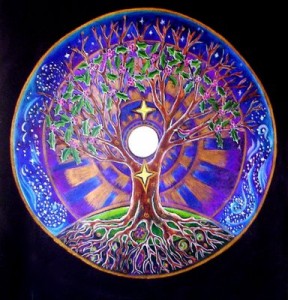What is Jungian Analysis?
Jungian analysis is an unfolding process that works with individuals to find a sense of wholeness and peace in their lives, of meaning and perhaps of recovering something that has been felt to be missing. This is a process often referred to as individuation.
Jung’s map of the psyche values the unconscious as having something of worth to tell us. A messenger that often speaks to us through dreams or in other ways, such as repeated patterns and behaviours that may be driven by our complexes and unresolved past experiences.
Traditionally, analysis takes place twice-weekly over a longer time period, but people may also seek a Jungian approach for short-term weekly psychotherapy, the length is determined according to individual need. People usually come because something has happened in their lives, or a symptom, be it emotional, physical or some kind of ‘block’ has been troubling them. Sometimes there is a trauma, big or small that has been dormant and is ready to be explored. Whilst a Jungian approach values the creative side and different forms of creative expression, the creative can be found in the everyday, even the mundane, the stuff of our relationships and families, the stuff of our work, that of our past and the future that is yet to come. The symptoms we might present with in therapy may be painful and arise from a conflict within ourselves but when we shine a light on them, meet them and unravel them we find the ‘gold in the shadow,’ the greatest potential for growth.
Analysis is a highly individual process and the therapeutic relationship is perhaps one of the most important factors that facilitates change. This is true of all types of therapy and has been shown in many studies. Jung stated that ‘true psychological treatment can only be individual, and this is why even the best technique has only a relative value’ (Jung, 1970, CW10, para 352).
What Happens in Jungian Analysis?
As previously stated, analysis is a highly individual process that is relational and a depth psychology which means that in contrast to other forms of therapy such as CBT it sees unconscious processes as central to growth. We can work with the unconscious in a variety of ways:
-
The exploration of dream material. However, not everyone brings dreams and it is not essential to the process. Dream material is often explored in tandem with what is going on in the client’s life and the core issues to help shed light on them.
-
The exploration of creative processes such as drawing, painting, writing, journaling, movement or music. This again is not essential and is not based on any expectations as to a level of ‘skill.’ See the above note regarding the creative being found in the everyday.
-
The use of methods such as active imagination and meditation to amplify dream material and creative activities.
-
The exploration of complexes. These are the areas where our most intense emotions are often activated, for example anger, guilt, shame and anxiety.
Above all, there is no formula, technique or set structure, the psyche is seen as instinctively knowing how to guide the process.